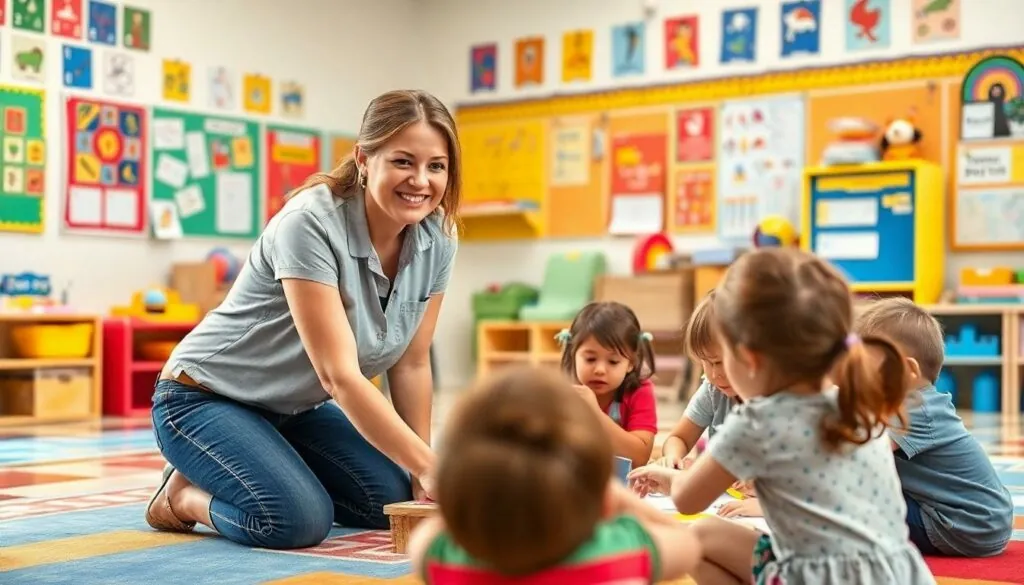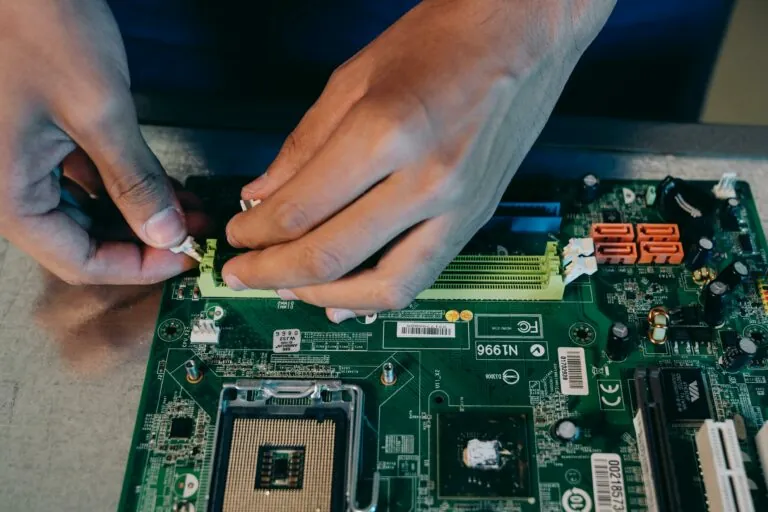In a world where toddlers can outsmart their parents and playground politics rival that of a corporate boardroom, pursuing a bachelor’s in child development might just be the most rewarding—and entertaining—career choice. This degree equips individuals with the tools to understand the complexities of childhood growth, from the first wobbly steps to navigating the emotional rollercoaster of adolescence.
Imagine being the superhero who helps shape young minds while dodging flying Lego bricks and negotiating snack time disputes. With a solid foundation in child psychology, education, and family dynamics, graduates can make a real difference in children’s lives. Whether it’s working in schools, childcare centers, or even as a child life specialist, a degree in child development opens the door to a fulfilling career filled with laughter, learning, and the occasional crayon masterpiece.
Table of Contents
ToggleOverview Of Bachelor’s In Child Development
A bachelor’s degree in child development equips graduates with essential skills to support and enhance the growth of children. This program covers areas such as cognitive, emotional, and social development, allowing individuals to understand how these factors influence a child’s learning process. Courses encompass topics like child psychology, developmental theories, and health and nutrition, providing a well-rounded foundation.
Graduates often work in diverse environments, including schools, daycare centers, and community organizations. As educators or child life specialists, they engage directly with children, helping to shape their experiences and foster positive development. Emphasis on practical experience helps students apply theoretical knowledge in real-world settings.
Students typically complete hands-on training through internships or practicum experiences. This exposure ensures graduates are prepared for various roles in child-focused fields. Networking opportunities during the program also enhance employability, connecting students with professionals in the child development sector.
Earning a bachelor’s in child development opens doors to numerous fulfilling career paths. Job prospects range from early childhood educators to developmental specialists. Each role offers unique opportunities for influence and impact, making this degree a rewarding choice for those passionate about advocating for children.
Curriculum And Course Structure

The curriculum for a bachelor’s in child development encompasses a range of courses designed to equip students with essential knowledge and skills. Students engage with both core and elective courses that foster a comprehensive understanding of child growth and development.
Core Courses
Core courses typically cover foundational topics critical for child development professionals. Students explore child psychology, developmental theories, and health and nutrition. Additional subjects often include early childhood education, family dynamics, and assessment techniques. Each course emphasizes hands-on learning, equipping graduates with practical tools to support children’s cognitive, emotional, and social growth. Faculty often encourage discussions and real-world applications to bridge theory and practice effectively.
Elective Courses
Elective courses allow students to tailor their educational experience according to personal interests and career goals. Options often include courses in special education, play therapy, and multicultural education. Students might also choose electives that focus on advocacy and policy in child welfare. By selecting electives, graduates enhance their expertise in specific areas, increasing their versatility in various professional settings. Engaging with diverse topics helps build a more rounded understanding of the multiple facets influencing child development.
Career Opportunities
A bachelor’s degree in child development paves the way for many rewarding career paths. Graduates can explore various roles that focus on nurturing and educating children.
Job Roles
Child development graduates engage in multiple job roles emphasizing children’s growth. Early childhood educators help shape foundational learning in preschool settings. Child life specialists guide children through medical experiences, providing emotional support. Developmental specialists work with children with disabilities, tailoring interventions to foster skill acquisition. School counselors serve as advocates for children’s academic and emotional well-being, promoting healthy development. Each role contributes significantly to enhancing children’s experiences and outcomes.
Potential Employers
Numerous organizations seek professionals with a bachelor’s in child development. Public and private schools often recruit early childhood educators for their programs. Childcare centers constantly look for qualified staff to care for and educate young children. Nonprofit organizations employ child development specialists to deliver community-based programs. Hospitals hire child life specialists to support children and families during medical treatments. Government agencies may also offer roles in child welfare and advocacy, addressing the needs of children and families in various capacities.
Skills Developed Through The Program
Graduates of a bachelor’s in child development acquire several essential skills. Communication skills improve significantly as they learn to interact effectively with children, parents, and colleagues.
Critical thinking abilities are honed through coursework that emphasizes problem-solving in real-life scenarios involving child development. Emotional intelligence develops as students engage with diverse populations and address varying emotional needs.
Furthermore, observational skills become vital in assessing children’s behavior and development. Practical training through internships enriches this ability, allowing students to apply theories learned in class.
Collaboration skills also flourish as graduates often work in teams with other professionals, creating integrated support for children’s needs. Classroom management techniques become familiar as they learn to create nurturing environments conducive to learning.
Cultural competence is emphasized, preparing graduates to respect and understand different backgrounds, which is essential in today’s diverse society. Additionally, advocacy skills empower graduates to promote children’s rights and well-being within community and policy contexts.
Time management often emerges as a crucial skill, given the multi-faceted nature of working with children and the various responsibilities in educational settings.
Ultimately, a bachelor’s in child development equips individuals with a diverse skill set that enhances their effectiveness as educators and advocates for children, readying them for various roles in the field.
Benefits Of Earning A Bachelor’s In Child Development
Earning a bachelor’s in child development provides numerous professional advantages. Graduates gain comprehensive knowledge about childhood growth, equipping them to positively impact young lives. Understanding cognitive, emotional, and social development becomes essential for practitioners, fostering healthier environments for children.
Employment opportunities expand significantly with this degree. Graduates often find positions in schools, childcare centers, and various child-focused organizations. Some work directly with children, while others engage in advocacy or support roles that promote children’s well-being.
Practical experience through internships plays a crucial role in skill development. Internships prepare students for real-world challenges they will face in professional settings. Networking during their studies often leads to valuable connections, enhancing job prospects after graduation.
A diverse curriculum ensures students can tailor their studies to their career aspirations. Core courses focus on critical child development topics, while electives allow exploration of special education, play therapy, and more. This flexibility increases employability and expertise in desired areas.
Developing key skills also stands out as a significant benefit. Improved communication, critical thinking, and emotional intelligence become integral to effective practice. Graduates learn to collaborate with colleagues and manage diverse classrooms, adapting to various cultural contexts.
Advocacy skills emerge as vital for promoting children’s rights. Understanding legislation while supporting families and communities enhances impacts on children’s lives. Time management becomes crucial when juggling multiple responsibilities, ensuring effectiveness in fast-paced environments.
Ultimately, a bachelor’s in child development opens doors to rewarding career paths, enabling graduates to advocate for and nurture the next generation.
A bachelor’s degree in child development offers a unique opportunity to make a lasting impact on children’s lives. Graduates emerge equipped with essential skills and knowledge to foster positive growth in various settings. Their ability to navigate the complexities of child development prepares them for rewarding careers that blend creativity and advocacy.
With diverse career paths available, from educators to child life specialists, the demand for professionals in this field continues to grow. The practical experience gained through internships and networking enhances their employability, ensuring they are well-prepared for the challenges ahead. For those passionate about nurturing the next generation, pursuing this degree is a fulfilling choice that leads to meaningful contributions in the lives of children and families.



